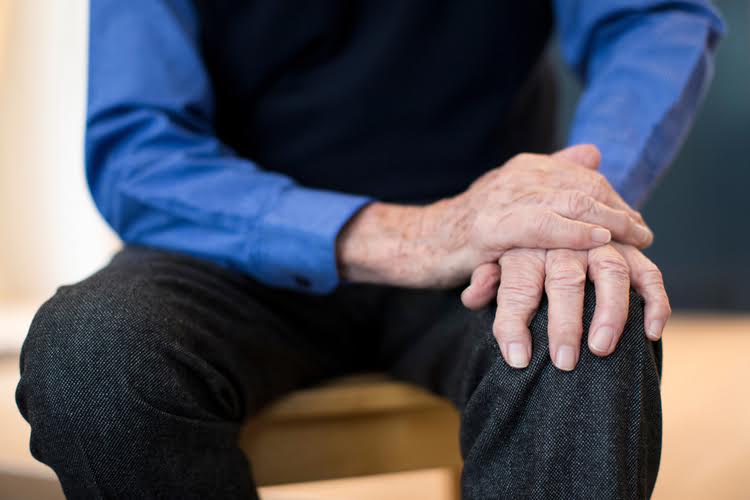Content
This learning/living community is the newest offering within the University’s comprehensive collegiate recovery program and will be staffed and supported by University personnel with deep expertise in collegiate recovery. “Emergency”Recover Housing (E-Bed) refers to short term placement in a safe, healthy and substance-free living environment that support individuals awaiting transition to a recovery program, transitional, or long term stable housing.
Required programming includes attending Alcoholics Anonymous or Narcotics Anonymous meetings, which encourage residents to develop a community support network, as well as other groups designed to support sober, clean living. The Office of Residence Life at Saint Joseph’s University strives to provide secure, academically focused housing which fosters a community of civility and respect and supports a positive living-learning environment consistent with Ignatian ideals. Allies of Recovery supports anyone affected by substance use disorder or in recovery by spreading awareness through open dialogue, providing a supportive environment and a safe zone. Each prospective resident will meet with our program manager and clinical advisor for an interview to allow us to get to know your unique goals and needs.
Aspire Sober Living
Recovery residences listed on the registry are verified by the Washington Alliance of Quality Recovery Residences as following the National Alliance of Recovery Residences best practices. These residences allow residents to use prescribed medication for physical health, mental health, and substance use disorders.
- Recovery residences listed on the registry are verified by the Washington Alliance of Quality Recovery Residences as following the National Alliance of Recovery Residences best practices.
- “Transitional” Recovery Housing refers to safe, healthy and substance-free living environments that support individuals in recovery from addiction.
- As such, the types of relationships that promote recovery are peer-to-peer rather than peer-to-professional, so house staff may also be comprised of individuals in recovery.
- Additionally, the NUWAY Alliance is available to partner with aligned organizations needing leadership and management to support recovery access.
“Transitional” Recovery Housing refers to safe, healthy and substance-free living environments that support individuals in recovery from addiction. Length of stay is determined by the housing provider and can generally last from a few months to two years. Recovery housing is a family-like, shared living environment free from alcohol and illicit drug use and centered on peer support and connection to services that promote sustained recovery from substance use disorders. They go by different names (Oxford House ™, sober home, sober living, halfway house, etc.), and their history can be traced back to the mid-1800s1. For some people, returning home after staying in a treatment program can be jarring and/or not in the best interest of continued recovery. Moving to a recovery residence is something to consider if you feel you need extra help staying sober before fully transitioning back into your community. Although most people who live in a sober living setting have been through formal treatment, some places will let you stay there independently of any rehabilitation stays or other treatment requirements.
Colorado Association for Recovery Residences
Recovery residences are privately-owned homes or complexes that provide housing for adults with a substance use disorder or co-occurring disorder. They serve individuals that are currently receiving outpatient SUD services or are enrolled in recovery services. This report identifies ten specific areas, or guiding principles, that will assist states and federal policy makers in defining and understanding what comprises safe, effective, and legal recovery housing. National organizations have contributed significant and valuable work in developing policies, practices, and guidance to improve recovery housing as an integral model of care. Recovery residences support individuals by providing a safe living environment and readily available community of recovery-related social support. The standards were Initially developed through an intensive collaboration between regional, state, and local organizations supporting recovery residences nationwide. Level 4 residences are state-licensed treatment providers who blend the “Medical Model” and” Social Model” to create a relatively more supportive environment for the person in recovery.
How do you know if you are sober enough to drive?
- Slurred Speech. Slurred speech is one of the classic signs that you're drunk.
- Trouble with Balance.
- Slowed Reaction Time.
- Unusual Speech.
- Trouble with Recall.
- Failed Field Sobriety Test.
- Try Phone Apps.
If you are interested in your recovery home being included in the recovery residence registry, please email the HCA recovery residence team. To provide ongoing training and support for members, program participants, and the community. Our Mental Health & Recovery Residential Programs are open and operating as usual, taking all necessary precautions to safeguard residents and staff. This set of standards has been adapted by MARR and reflects the consensus of NARR affiliates that the Social Model, implemented in varying degrees, is the foundation for all four support levels. Admission to the residence is on a rolling basis and is open to all students in recovery. The recovery residence is the central hub of Saint Joseph’s Collegiate Recovery Program. The National Alliance for Recovery Residences has established national best practice standards and a certification program, which owner-operators can use as a roadmap (see NARRonline.org).
Doc’s Recovery House
Project HOME is on the front lines of addressing one of the most devastating crises in the nation – our opioid epidemic. We are creating a meaningful recovery effort that will provide much needed support and permanent housing focused on recovery. This is one of the ways Project HOME will empower adults to break the cycle of homelessness while addressing the opioid crisis and the impact addiction has on the homeless community.
The Barbara House gets conditional use permit to operate – Fergus Falls Daily Journal
The Barbara House gets conditional use permit to operate.
Posted: Fri, 18 Nov 2022 08:00:00 GMT [source]
WVARR will publish a directory of certified residences to help you learn more about the options available or to find specific information, like whom to contact, how to pay, and what kind of services the home provides. We manage the ethical and safety standards for recovery residences in the State of Maine and certify residences based on the standards established by NARR. The Recovery Residence on the Ridgeview Institute campus offers supportive community living for patients in both our addiction and psychiatric partial hospitalization programs. Therapeutic communities offer a holistic approach that emphasizes the community, employs professionally trained staff, and offers structured treatment services.2 This is an example of a level IV residence. Filters to the left of the map allow you to search for the type of home you are looking for. Both recovery residences and Oxford Houses are peer-run and peer-operated homes.
West Side Sober Living
We provide transportation to your addiction treatment, recovery groups, and 12-step meetings. Our house managers and staff are always available to help you work through the questions and obstacles that come naturally in recovery. If this rule is violated, you will likely be asked to leave, as your substance use could jeopardize the sobriety of other residents. The amount and types of rules and responsibilities will be different based on what level and type of recovery residence you choose. Services will include a safe, supportive program with a range of services to assist individuals on the path to recovery – coupled with education, employment, and healthcare supports to help people stably transition to permanent supportive housing. The work at Sacred Heart will build on Project HOME’s existing successful program at St. Elizabeth’s Recovery Residence to address the growing opioid epidemic in Philadelphia.

